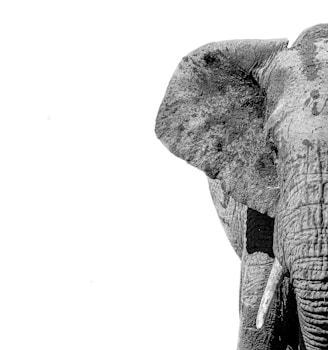What is “careerism” and who are “careerists”?
ca·reer·ism (kə-ˈrir-ˌi-zəm)
: the policy or practice of advancing one's career often at the cost of one's integrity
Merriam-webster.com
ca·reer·ist (kuh-reer-ist)
: someone who thinks that their career is more important than anything else, and who will do anything to be successful in it
Dictionary.com


Most common conceptions of careerism are negative. Some of the earliest academic references to careerism define it as "the propensity to pursue career advancement through non-performance-based means" (Feldman, 1985).
Research in the early 1990s described MBAs as having "undesirable traits such as unrealistic expectations, a rather crass, “careerist” orientation, and a tendency toward job-hopping." Other research states that, "employees with a careerist orientation have career goals that are inconsistent with the interests of the organization in the long run. They believe that it is difficult to advance in organizations through merit alone, it is necessary to engage in strategy of organizational politics behavior, impression management, even deception which will ensure a promotion."
Careerism has been associated with social-loafing (i.e. not pulling your weight), as well as adversely affecting organizational citizenship behaviors. Some researchers have even associated careerism with psychopathy.
In the long run, careerists don't have the organization's (or their co-workers') best interests at heart. They are in it for themselves, advancing their careers at all costs, always looking out for number one.
In defense of careerists
The "careerist orientation" is really a new attitude toward work, shaped by the changing relationship between employees and employers. Gone are the days when employees stayed at the same company their whole career, gradually ascending through the ranks of more prestigious jobs in the organizational hierarchy. Career advancement was the reward for hard work, performance, and commitment. Employers asked employees for their loyalty in exchange for job security and career progression. That was the deal.
Today's employees are offered no such promises, and have no such expectations. Down-sizing, mass layoffs, cost cutting, restructuring, mergers and acquisitions, offshoring, rapidly changing technologies, automation, skill obsolescence, globalization, increased labor market competition, and demographic shifts in a "VUCA" world have seen to that. Is it any wonder today's workers approach their careers as every man and every woman for themselves? When you are replaceable and expendable, where else should your loyalty lie, other than to yourself?


The elephant in the breakroom
The element of careerism that too often goes unmentioned is how it fuels consumption and lifestyle creep. The pursuit of careerism leads to promotions, higher salaries, pay raises, and bonuses. All quite possibly well deserved, but these provide the means to spend on new and better stuff.
Like all of us, careerists quickly adapt to their new, higher standard of living. They become dependent on their jobs, not just to provide for their basic needs, but to finance their increasingly expensive lifestyles. Careerists are stuck in the cycle of work and spend, running in place on the hedonic treadmill.


Careerism
: the belief that your career and professional pursuits are what you're supposed to do to find identity, purpose and meaning; that succeeding in your career is how you live a good and successful life
RecoveringCareerist.com
Careerist
: someone who consciously or unconsciously believes their career is a defining feature of who they are, and is dependent on their job for both means and meaning
RecoveringCareerist.com
An alternative definition of careerist
Careerism, as it is commonly defined, misses the mark. It narrowly casts careerism as getting ahead at all costs by acting in unethical and unscrupulous ways. It puts careerism at the fringe. There are bad actors out there, but that isn't what most careerism amounts to today. The centrality and importance of having a career isn't limited to a few overly ambitious careerists who cross the line. The centrality and importance of having a career is deeply engrained in most of us, especially educated, white-collar, knowledge workers.
The reality is, we live in a careerist culture. There isn't much that's more socially desirable than having a good job and a good career. The pinnacle of self-actualization is a job you are passionate about, and that defines who you are. Careerism isn't a negative, it's a virtue. It's not fringe, it's mainstream. But there's an elephant in the breakroom. As people pursue their careers, they yoke themselves to increasingly expensive lifestyles. It may work for some, but for most it leaves their souls, and their piggy banks, a little empty.
There is a more accurate way to define careerism.


Does the shoe fit? You might be a careerist if you...
Start with your job when asked to describe yourself
Are preoccupied with getting a raise
Believe in “work-life-integration”
Use your job to scale up your lifestyle
Have given a lot of thought to your career path
Prioritize having a good career ahead of most other things
Pay close attention to educational pedigree
Believe finding purpose and meaning at work is necessary
Secretly hope people are impressed with your job
Really care about your job title
Are a knowledge worker (and you know what that means)
Have told people you are passionate about your job
Worry your peers are getting ahead faster than you
Post anything on LinkedIn


Is being a careerist a bad thing?


Not necessarily. A career can provide a sense of purpose and accomplishment. It can be a way to grow and develop, both professionally and personally.
Careers allow us to provide for ourselves and our families. They are a means to be self-sufficient and generate savings to take care of our future selves.
We need people to work. Industrious, productive people who contribute to society are essential. We wouldn't have the technological advancements, economic prosperity, and high standards of living we enjoy today unless people were focused and committed to their careers.
Obviously. But having a career is not the same as being a careerist.
Being a careerist is a bad thing when:
You loose your true sense of self to your job
Searching for your true calling in your career comes at the expense of finding your true calling
You aren't actually making the best use of your time and talents
You aren't living life in alignment with your values
It hurts your relationships
It impacts your health
It's not a conscious choice
You are stuck in the cycle of work and spend
You want off the hamster wheel, but don't have a plan

